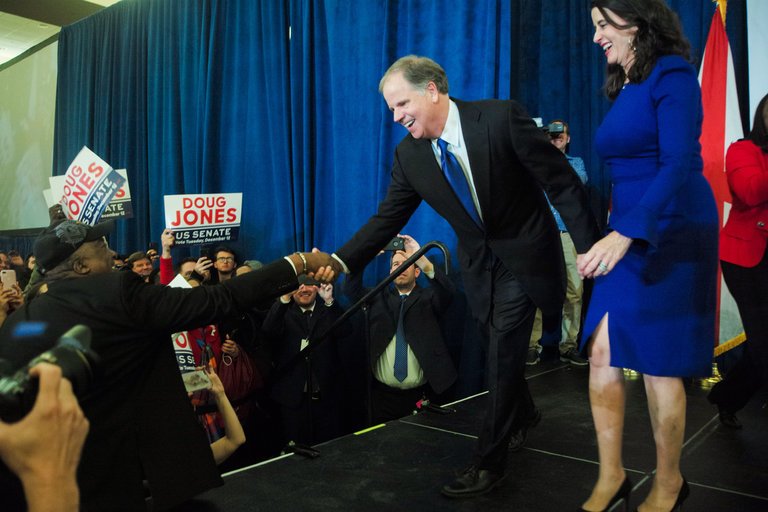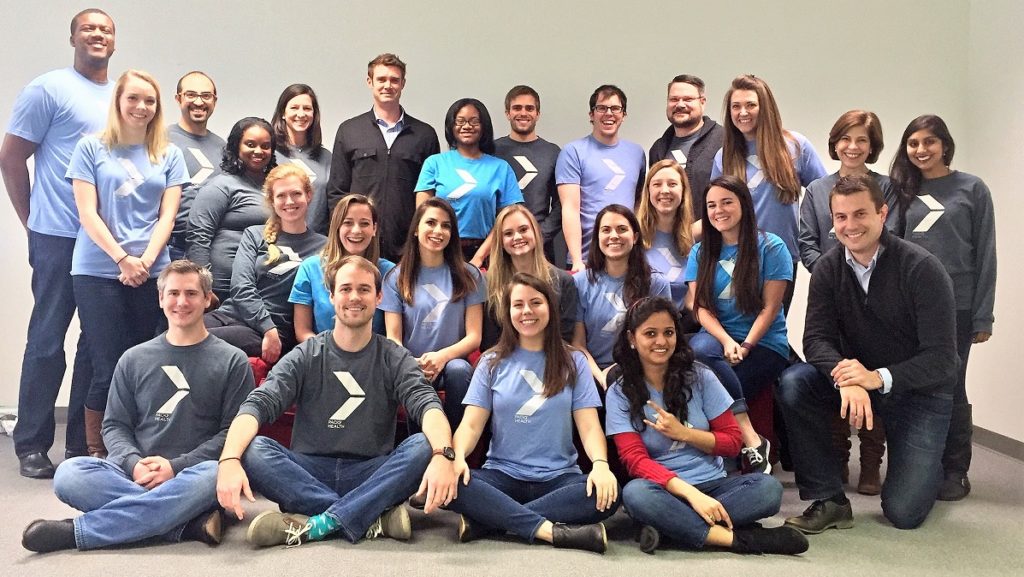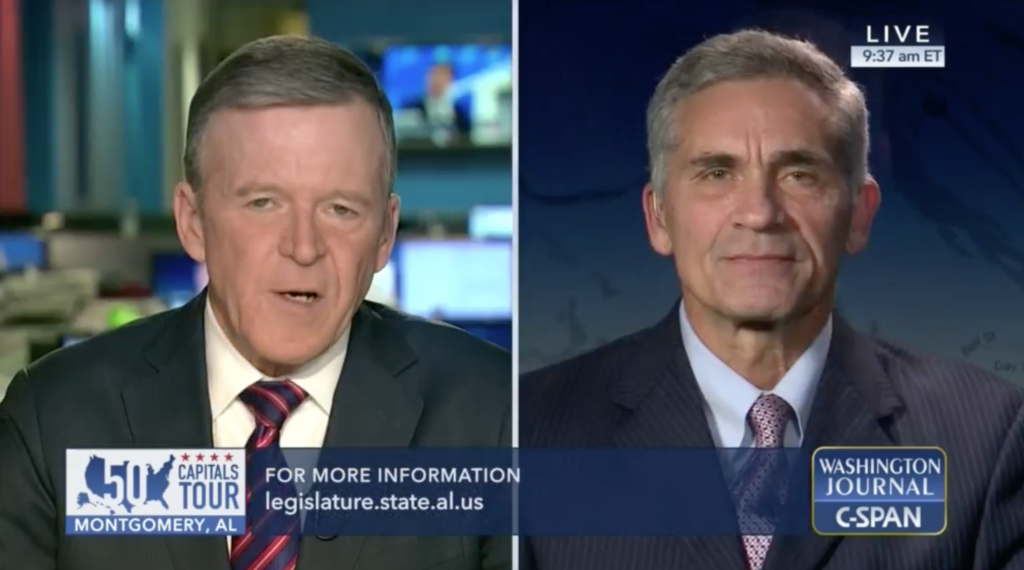DNC lied about how much it spent to defeat Roy Moore

Following Democrat Doug Jones‘ victory in December, the Democratic National Committee (DNC) claimed they aided his campaign tremendously; declaring they spent $1 million dollars of their own money towards defeating Republican Roy Moore. Last year’s heated senate race between now Senator Jones and his opponent, former Alabama Chief Justice, Moore had everyone in Alabama on edge. The race garnered national media attention and even the attention, and endorsement, of President Donald Trump. What a great opportunity for the DNC to show it’s power and wealth. Well, maybe not. Although the committee did contribute aides, organized voter-outreach plans, and campaigned via text, calls, and volunteers, the committee only spent $250,000 of their own money towards the campaign. The cash was used to fund more than two dozen staffers in Alabama who organized outreach to African-American voters. The rest of the $1 million that the DNC claimed actually came from voters and donations that the DNC solicited for Jones campaign. “For the first time in its history, the DNC used its email list for split fundraising to directly raise money for and invest in campaigns across the country in 2017,” Michael Tyler, DNC spokesman told McClatchy. “While the RNC cut blank checks for an accused child molester, we’re proud that tens of thousands of Americans contributed $5 and $10 at a time to fund the Doug Jones campaign’s organizing efforts.” The DNC has filed reports with the Federal Election Commission showing $87,000 and claims they will be able to show another $163,000 when records of their spending are received. The remaining $679,000 they raised through e-mail fundraising will not have to be reported with the FEC since the money never actually passed through the committee. Jones is already working on paying the committee back, at the end of December he sent an e-mail to former Vice-President Joe Biden‘s PAC, American Possibilities asking for donations for democratic candidates in 2018.
House committee extends Stand Your Ground law to Alabama churches

An Alabama House committee on Wednesday approved a bill that would extend the state’s Stand Your Ground law to churches. Sponsored by Rogersville-Republican State Rep. Lynn Greer, HB34 was sent to the full House on a voice vote by the House Judiciary Committee sent. Under existing law, a person is justified in using physical force, including deadly force, in self-defense or in the defense of another person under certain conditions. And a person is legally presumed to be justified in using deadly physical force, in self-defense or the defense of another person against a person committing or attempting to commit certain specified crimes. Under Greer’s bill, a person is presumed justified in the use of physical force to defend an employee, volunteer or member of a church from assault, whether on church grounds or in a church-related activity. Greer said he introduced the bill after churches in his district asked him to sponsor the legislation due to church shootings around the country. But not everyone is in favor of the bill. Members of Moms Demand Action for Gun Sense in America opposed the bill in a public hearing last week, putting pressure on lawmakers to reject it. There, Anne Leader, leader of the Alabama Chapter of the group, argued that Stand Your Ground laws allow people to “shoot first and ask questions later.” The bill moves on the full House for consideration.
Alabama House passes bill to ban smoking in the car with minors

On Tuesday, the Alabama House passed a bill that aims to stop adults from smoking tobacco products in a motor vehicle while any minors are present. Birmingham-Democrat State Rep. Rolonda Hollis filed HB26 in an effort to protect minors who cannot protect themselves from harmful tobacco products. “We aren’t saying you can’t smoke, and we aren’t saying what to do with your body,” Hollis told AL.com. “We just want to look out more for the kids.” Hollis was inspired on a date night with her husband, he lit a cigarette in the car while they were out and Hollis said she could hardly breathe. “If I can barely breathe, I’m sure children can barely breathe,” said Hollis. Violators would receive a $100 fine for every offense. According to the American Lung Association 41,000 people in the U.S. die every year from second-hand smoke, and children who are exposed to it are at risk for heart disease, lung disease, and lung cancer. Secondhand smoke is also a known cause of sudden infant death syndrome (SIDS) and children are more likely to have lung problems, ear infections and worse asthma from being exposed to it. If the bill passes through the senate, Alabama would be one of only nine states to enact a smoking ban with children in the car. According to the American Nonsmokers Rights’ Foundation these are the current smoking bans in the U.S.: Arkansas Persons < than age 6 and under 60 pounds in a child safety seat. Effective 07/21/2006 Persons < age 14. Effective 07/27/2011 California Persons < age 18 Louisiana Persons < age 13 Maine Persons < age 16 Oregon Persons < age 18. The Legislature enacted SB444, which prohibits smoking in any motor vehicle in which a child under age 18 is a passenger. Enacted 6/11/2013 as Chapter 361 2013 Laws. Puerto Rico Persons < age 18 Utah Persons < age 16 Vermont Persons aged 8 and under Virginia Persons < age 8
Birmingham startup Pack Health to create 175 jobs in expansion

Startup Pack Health plans to open a new headquarters in downtown Birmingham and anticipates hiring 175 additional employees over the next four years, including programmers, developers, health advisers and other positions, according to the Birmingham Business Alliance (BBA). Pack Health has 30 employees and is renovating a building on First Avenue North that should open this summer. Capital investment in the project is $2.9 million, the BBA says. “In addition to accommodating our growing staff and bringing us closer to UAB and quality-of-life factors such as Railroad Park, Regions Field and Innovation Depot, this is a space where we can host events, work more closely with our local partners and become a hub for innovation in health and health care in Birmingham,” Pack Health President Mazi Rasulnia said. Pack Health is a digital platform for chronic care management that was founded in 2013 and moved to the Innovation Depot business incubator in 2014. It graduated from the incubator in 18 months and renovated a building in Avondale for its first headquarters. Its new headquarters is just two blocks from Innovation Depot. “I congratulate Pack Health,” Birmingham Mayor Randall Woodfin said. “From its inception here to aligning with major national partners and adding jobs, the company’s growth is a great example of how Birmingham is growing to meet the needs of its citizens.” ‘Success story’ The company worked with the Alabama Department of Commerce, Alabama Power Co., REV Birmingham, the City of Birmingham, the Jefferson County Commission and the BBA to make the expansion a reality. “Innovation represents a key catalyst in Alabama’s continued and future economic success. Pack Health has fully embraced this concept and recognizes the benefit of being a major part of the state’s innovation community,” said Greg Canfield, secretary of the Alabama Department of Commerce. “We look forward to working with them as they continue to pave the way for a better and healthier Alabama.” The digital health coaching that Pack Health provides helps people living with chronic conditions access care in an appropriate cost-effective manner, improve their health outcomes and get more enjoyment out of a healthy life. “Pack Health is truly a Birmingham startup success story,” Jefferson County Commissioner David Carrington said. “Their corporate strategy has resulted in rapid growth, which has enhanced the health of many Alabama citizens. As such, the commission fully supports the expansion of their services throughout our region.” Strategic partnerships Pack Health’s expansion comes on the heels of several strategic partnerships for the company. Coverys, a nationally recognized medical professional liability insurer based in Boston, recently made a strategic investment in the company that will allow Pack Health to expand its footprint within business organizations. “Helping companies like Pack Health grow in Birmingham is a significant goal for the Birmingham Business Alliance and its partners,” said Jon Nugent, the BBA’s vice president of innovation and technology. “Pack Health and the Birmingham startups of today are very important to our community’s future and the ability to compete globally for funding and talent. We are fortunate that we have public and private partners in Birmingham that understand that well,” he said. This story originally appeared on the Alabama Department of Commerce’s Made in Alabama website. Republished with permission from the Alabama NewsCenter.
C-SPAN’s 50 Capital Tour visits Montgomery, speaks to Del Marsh

The C-SPAN bus has gotten a new look for its 25th birthday, and to show it off the network is sending it across the country where it’s in the midst visiting all 50 state capitals as part of a 14-month tour. On Thursday, the bus made it’s 17th stop on the 50 Capitals Tour in Montgomery, Ala. where they sat down with Anniston-Republican and Senate President Pro Tem Del Marsh to discuss how national issues are affecting the state. In the segment, which was featured on C-SPAN’s Washington Journal, a live morning call-in program, Marsh talked about key issues in Alabama including the budget and economic incentives, immigration, the opioid crisis and medical marijuana, infrastructure, and more. When asked how the state is doing after a tumultuous 2017, Marsh suggested there is now a “calm over the state.” “There’s a calm over the state I would say. Getting through the transition things are moving forward very well,” Marsh said speaking of the Robert Bentley– Kay Ivey transition in the governor’s office. “We’ve got a good year. For the first time in several years our revenues are better than usual.” Marsh went on to explain the Alabama economy is doing well and discussed how economic incentives are helping bring business to the Yellowhammer State “Alabama is very pro-business,” he continued. “We have been offering these economic incentives. We go a step further in that we come back three years after the fact and automatically review these incentives. At the end of the day, there has to a be net economic gain to the State of Alabama. Watch Marsh’s full 28-minute interview below:
Incentives bill to encourage rural broadband expansion passes Alabama Senate

Clearly the third time’s a charm when it comes to passing a bill that incentivizes the expansion of rural broadband. Guntersville-Republican State Sen. Clay Scofield re-introduced SB149 — a bill that incentivizes private projects and increases opportunity for rural broadband expansion — for the third time this quadrennium and it finally passed the Senate on Thursday. “In the 1930s the infrastructure challenge was electricity, and in the 60s and 70s it was ensuring rural areas had clean drinking water. Expanding access to broadband internet is the infrastructure challenge of our day. We must ensure that all Alabamians have an opportunity to succeed in the digital economy,” Scofield said. “Currently, thousands of families and businesses in rural Alabama are without access to fast broadband. That’s unconscionable.” The Alabama Rural Broadband Act is a free-market approach to increasing private investment to expand high-speed internet access across the state. The legislation would exempt companies that build qualified broadband telecommunications network facilities in rural areas from sales tax for 10 years. It would also provide a 10 percent investment tax credit, capped at $20 million per company annually. The Alabama Department of Economic and Community Affairs (ADECA) and a legislative oversight committee are tasked with overseeing implementation of the legislation. All of the incentives will expire in five years, unless renewed by the state legislature. “Students, families, and business owners in rural Alabama desperately need fast broadband internet,” said Jasper-Republican Senate Majority Leader Greg Reed. “Senate Republicans are committed to making sure that all of Alabama thrives as our state economy continues to grow. I commend Sen. Scofield for his able leadership in moving this legislation forward.” The World Bank commissioned a study in 2015 that showed a 10 percent increase in broadband penetration could increase economic growth by 1.2 percent. It also stated that doubling broadband speeds can add 0.3 percent to GDP growth. “Seventy years ago, co-ops and private companies invested in bringing electricity to the country, improving life and creating jobs for millions. It’s my hope that this legislation will spur the same expansion with the internet to all those same households and businesses,” Scofield remarked. SB149 now moves to the Alabama House of Representatives for consideration.

